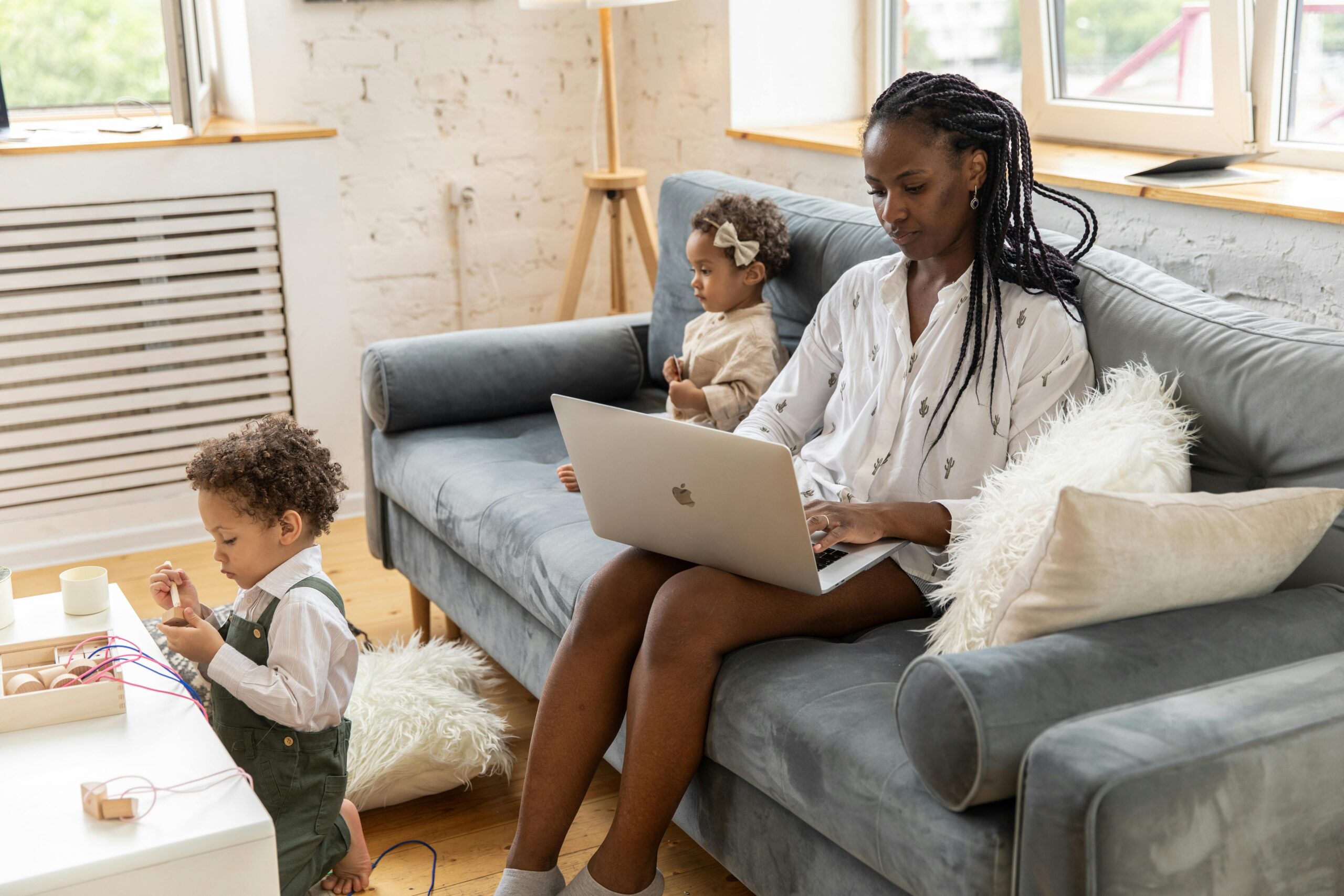The pandemic led to a tidal wave of remote working opportunities that changed the definition of what a traditional work environment is. For many employees, working from home is an absolute dream. But for others, the idea of remote work isn’t quite what it’s cracked up to be.
The truth is that working from home isn’t a one-size-fits-all solution. In fact, there are plenty of signs that indicate it’s not for just any and everybody. From scheduling conflicts to noisy neighbors, there are a number of factors that can make remote work more challenging than convenient.
Here are six signs working from home isn’t working for you.

1. You have an unhealthy work-life balance.
For many people, working from home makes it challenging to keep their personal and professional lives separate. In fact, several studies suggest that remote workers tend to work longer hours since they can’t leave the “office.” But overworking yourself is not healthy, and can quickly lead to burnout, making matters a whole lot worse.
So if you’re constantly checking your work emails or taking professional calls during off-hours, consider adopting a healthier work-life balance. For many people, that can mean setting clear boundaries around their time. Or for others, it might mean a return to the office.
2. Your productivity is lacking.
Even though working from home often means you have a more flexible schedule, it requires a lot of discipline to maintain it.
Distractions like chattering housemates, barking dogs, or household chores can cause you to lose concentration, and thus productivity.
So if you notice your productivity steadily decreasing after moving to remote work, consider whether your home environment is conducive to getting work done.

3. You feel lonely.
Despite having social media at the ready, working from home can be pretty isolating. This is especially the case for extroverts who enjoy connecting with others.
Feeling lonely or disconnected from your colleagues can be a red flag that remote work isn’t fulfilling your need for social connection.
If this is you, you can make an effort to connect with others remotely via virtual happy hours or regular check-ins with your coworkers, or even try out a co-working space for social interaction.
4. You have tech and connectivity troubles.
Obviously, remote work relies heavily on technology, so if you don’t have a decent connection, you don’t work.
Having unreliable internet connections, glitchy software, or outdated hardware can seriously hamper your productivity at work. On top of that, experiencing these technical difficulties can be immensely frustrating. This is particularly true if you’re unable to meet deadlines or attend virtual meetings due to connectivity issues.

5. You’ve hit the ceiling.
While remote work can enhance productivity, in some fields, it can make moving up the corporate ladder pretty challenging, if not impossible.
Attending networking events, in-person meetings, and mentorship sessions can be useful career opportunities. And if you want to advance professionally, missing out on them can hinder your growth potential.
6. Your mental health is taking a hit.
Working in person provides a healthy dose of social interaction, which is a necessary part of life. However, on the flip side, being isolated from others every day can take a toll on your mental health. And over time, it can cause you to feel lonely, anxious, or even depressed.
If you have concerns about your mental health since transitioning to remote work, help is always available. Don’t be afraid to seek support from a therapist or other mental health professional who can help develop coping strategies and provide valuable support.
popular posts
- 1It’s Black Business Month, So Let’s Go Shopping and #BuyBlack!
- 2These Home Decor Items Will Instantly Make Your Space Look Outdated
- 3Black-Owned Home Decor Stores To Support Across the United States
- 4A Look Inside Elon Musk's Tiny $50,000 House
- 57 Black and Multicultural Designers To Follow For Design Inspo
Office

Home Office Remodeling Ideas: 6 Ways To Freshen Up Your Workspace
by Kelsey Marie | February 9, 2023
Spaces
Whether it’s luxury or ease, every area of your home should be as fabulous and unique as you.
Here's How You Can Add Wellness Into Your Home's Design
by Kelsey Marie | March 14, 2023
Staying In? These Are The Best Robes For A Luxury Night In
by Kelsey Marie | March 22, 2023
Treat Yourself: 5 Items You Need To Curate An At-Home Spa
by Kelsey Marie | March 19, 2023
FOLLOW ALONG ON INSTAGRAM
#homeandtexture
Find us on social for more home inspiration where culture, personal style, and sophisticated shopping intersect to help you create a home where you love to live.







